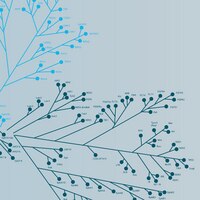Jun N-terminal kinase mediates activation of skeletal muscle glycogen synthase by insulin in vivo.
Moxham, C M, et al.
J. Biol. Chem., 271: 30765-73 (1996)
1996
显示摘要
Mitogen-activated protein kinases (MAPKs) represent a conserved family of Ser/Thr protein kinases with central roles in intracellular signaling. Activation of three prominent members of the MAPK family, i.e. extracellular response kinases (ERK), jun N-terminal kinase (JNK), and p38, was defined in vivo in order to establish their role, if any, in the cardinal response of skeletal muscle to insulin, the activation of glycogen synthesis. Insulin was found to activate ERK, JNK, and p38 in skeletal muscle. The time courses for activation of the three MAPKs by insulin, however, are distinctly different. Activation of JNK occurs most rapidly, within seconds. Activation of p38 by insulin follows that of JNK, within minutes. Activation of ERK occurs last, 4 min after administration of insulin. The temporal relationship between the activation of ERK, JNK, p38 and the downstream elements p90(rsk) and PP-1 in vivo suggest that JNK, but neither ERK nor p38 MAPKs, mediates insulin activation of glycogen synthase in vivo. Activation of JNK by anisomycin in vivo mimics activation of glycogen synthase by insulin. Challenge by anisomycin and insulin, in combination, are not additive, suggesting a common mode of glycogen synthase activation. The p90(rsk) isoform rapidly activated by insulin is identified as RSK3. In addition, RSK3 can be activated by JNK in vitro. Based upon these data a signal linkage map for activation of glycogen synthase in vivo in skeletal muscle can be constructed in which JNK mediates activation of glycogen synthase via RSK3. | Kinase Assay | 8940056
 |
Use of peptide substrates for affinity purification of protein-serine kinases.
Woodgett, J R
Anal. Biochem., 180: 237-41 (1989)
1989
显示摘要
The ability of protein kinases to phosphorylate synthetic peptides corresponding to identified protein phosphorylation sites has previously been used to determine primary structural requirements and has helped define distinct "recognition sequences" for a variety of enzymes. Here, we have used an immobilized synthetic peptide derived from glycogen synthase to specifically purify two protein kinases. In the case of one, glycogen synthase kinase-3, the peptide is only a substrate if previously phosphorylated at a distinct site by another protein kinase, casein kinase-II. This prerequisite is reflected in the differential affinity of glycogen synthase kinase-3 for the immobilized phospho- and dephosphopeptide. This difference in binding has been exploited to effect purification of glycogen synthase kinase-3 as well as casein kinase-II. The general applicability of peptide-based affinity chromatography is discussed. | | 2554753
 |













